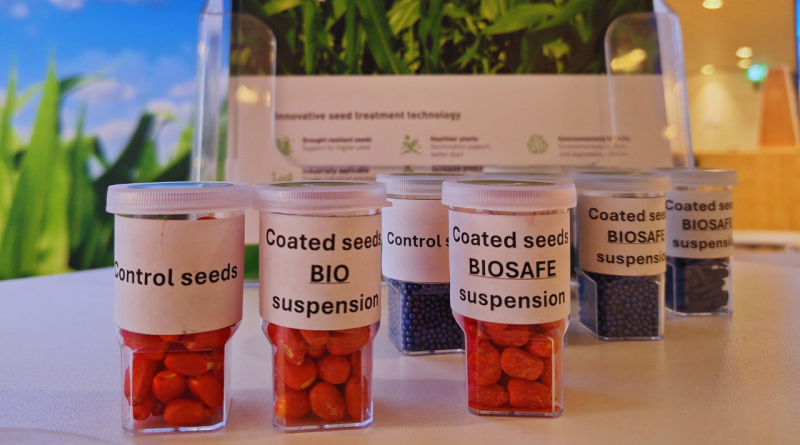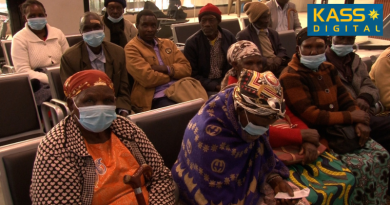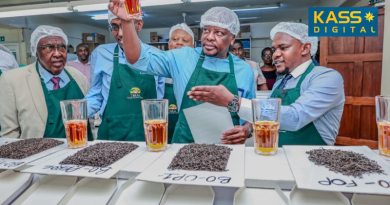What does Seed Certification mean for Agricultural Productivity?
Rotterdam, 28 May 2024 – The use of certified seeds that adhere to rigorous standards and protocols, leads to predictable yields and high-quality crops— making it easier for farmers to access markets with strict quality standards, mitigating risks associated with pests, diseases, and environmental factors, thereby safeguarding livelihoods and investments— says the delegates attending the World Seed Congress.
Seed industry leaders, meeting in Rotterdam, Netherlands, who began their presentation on Monday discussing strategies for mobilizing resources to innovate and advance seed resilience, said that to feed the ever-growing global population, farmers need to utilize certified seeds.

These seeds, they say, are bred for uniform traits, resulting in consistent yields and crop quality, which are crucial for sustainable agricultural operations.
While Kenya’s number of registered seed companies has grown to about 26, producing and distributing superior seeds for both commercial and domestic use, farmers predominantly focus on formal maize seeds. This limited diversification coupled with presence of fake seeds in the market, leaves the country’s agricultural output vulnerable to food insecurity, delegates noted.
Farmers are urged to explore the cultivation of vegetable seeds, as a source of nutrients and vitamins, which have a clear role to play to address challenges of malnutrition.
What is Seed Certification, and Which Laws Govern its Regulatory Process in Kenya?
According to the Kenya Plant Health Inspectorate Service (KEPHIS), the country’s regulatory body that coordinate and direct the seed systems, ‘Seed certification is a process in which seeds intended for planting are evaluated, tested, and certified to ensure that only high quality seed of crop varieties are available for use by the farmers.’
Wangui Ngirici the board chairperson of Kenya seed Company Limited who was speaking exclusively to Kass Media on the sidelines of the International seed federation’s world seed congress, said that the law in Kenya under the Seeds and Plant Varieties regulations of CAP 326, is there to ensure ‘quality and standard in seeds, true to type, high in purity and germination capacity, and free from pests and diseases.’
She said that the country also works closely with International laws to harmonize seed certification processes and regulations.
Ngirici added that organizations like Seed Trade Association of Kenya (STAK), African Seed Trade Association (AFSTA), along with the Ministry of Agriculture, play a crucial role in regulating seed production and ensuring compliance with international standards.
“Kenya Seed Company is committed to adopting new technologies, such as Artificial Intelligence (AI), for better seed processing and growth. This is why we are here in the Netherlands to build partnerships and knowledge exchange among global stakeholders in the seed industry,” she said, “Our goal is to stay at the forefront of agricultural innovation, ensuring that we can meet the future needs of our farmers and consumers and minimize wastage.”
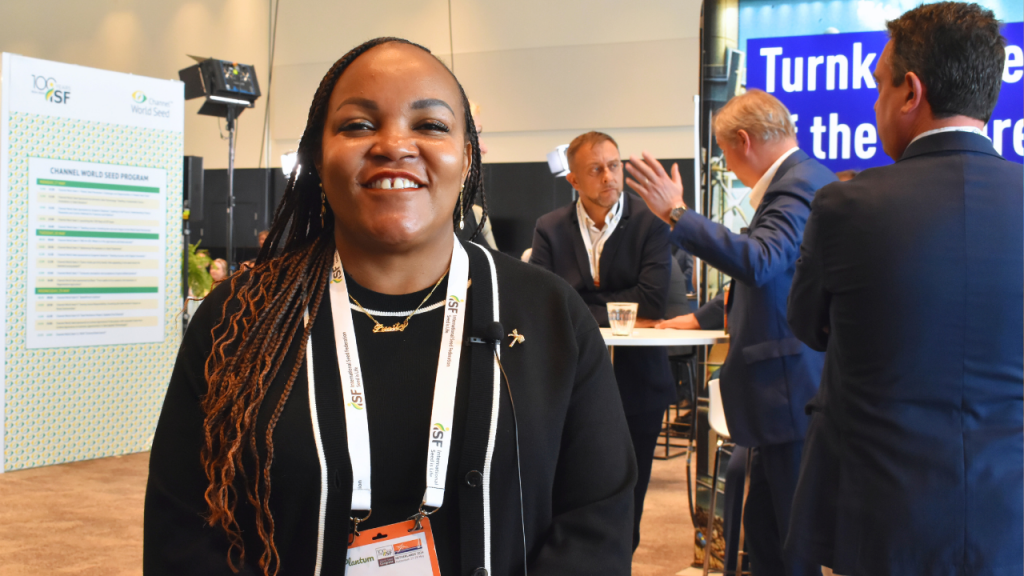
Ngirici said that these collective efforts are key to maintaining the integrity of the country’s seed systems.
How does the use of certified seeds impact various regions?
A look into the work of East-West Seed company, present at the centennial World Seed Congress, showcases the impact of certified vegetable seeds on agricultural productivity in Asia.
“Vegetable seeds, which are a significant part of our market, are crucial for adding value to farmers and consumers,” said Dr. May Kanokwan Chodchoey, the Group Head, Public Affairs at East-West Seed.
She said that the goal is to develop vegetable varieties that offer more nutrients and better stability in the market, ensuring they meet the needs of both consumers and processing companies.
“By integrating vegetables into agricultural practices, the overall sustainability of food systems is enhanced.” She said.
Dr. Chodchoey, whose company has operations in Asia, Latin America, and East and West Africa, said that certified seeds ensure high germination rates and purity—a reliability that is essential for both local consumption and export markets.
The breeding process for these seeds focuses on traits that enhance nutrition and sustainability, contributing to food security alongside staple crops like rice and corn.
“This variety meets both farmers’ needs for reliable crops and consumers’ demands for high-quality products,” Chodchoey said.
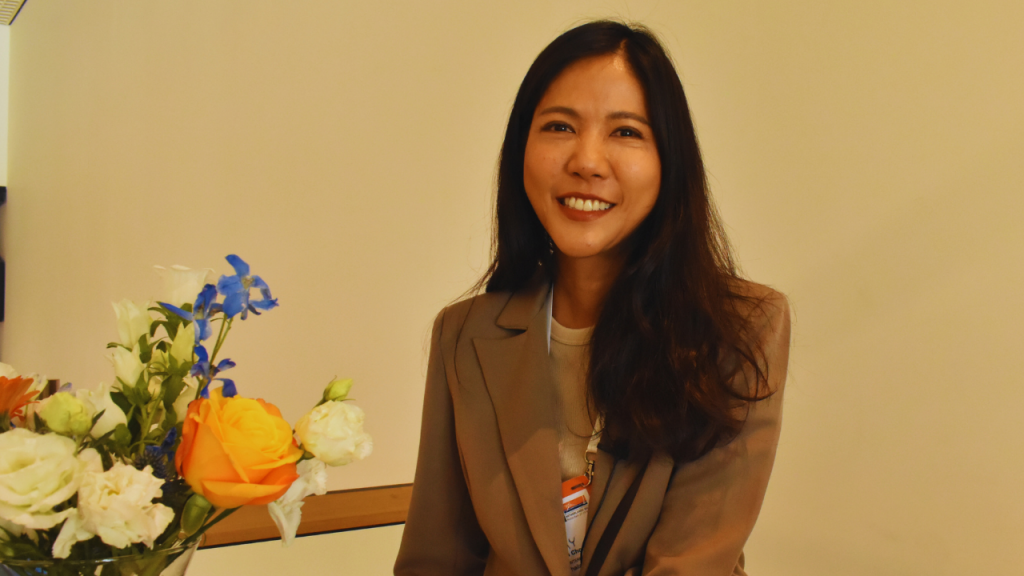
Dr. Chodchoey added that certified seeds play a crucial role in addressing climate change challenges and that Innovations are being made every day to ensure the seeds are bred to be resilient to changing climatic conditions, ensuring that farmers can continue to produce crops even under adverse weather conditions.
What challenges exist in ensuring farmers have access to certified seeds?
The success of certified seeds on the farm depends upon ensuring access to high-quality seeds in the market. However, illegal seed practices such as false labeling, counterfeits, misrepresentation, and the presence of under-performing seeds, significantly impede the seed supply chain.
Along with the spurious seeds (which is any seed which is not true to type as claimed and does not meet minimum limit of genetic purity and additional seed standards) — protectionism and border restrictions, further exacerbate these challenges, delegates say.
“Seed certification, aimed at guaranteeing seed identity, variety, germination, and disease absence, is primarily a government task. However, in many countries, government efficiency in this area is lacking.” Michael Keller, Secretary General of ISF said.

Keller said that to address these challenges they have established a model in the Netherlands where private organizations manage certification agencies under government oversight.
“This arrangement ensures efficiency while maintaining government control over quality,” he said. “We must avoid lengthy, expensive, and bureaucratic processes to meet farmers’ needs effectively.”
Earlier today, a memorandum of understanding (MoU) was signed by the International Seed Federation (ISF) and 12 other organizations, including the African Seed Trade Association (AFSTA), the Seed Innovation Protection Alliance (SIPA), and the Seeds Innovation and Protection Initiative (SIPI), to increase awareness about legal seed and plant practices worldwide.
With this MoU, the organizations are coming together in the fight against illegal seed practices (ISP), which include: counterfeit seeds, fraudulent labeling, intellectual property infringements, regulatory offenses, trademark infringements, and thefts of proprietary material.

“It is time that we act together to raise awareness about not only the magnitude but also the serious consequences that illegal activities in seeds may have not only economically to seed companies and farmers but also to consumers,” said Marco van Leeuwen, President of ISF.
ISF, said that the prevalence of illegal seed practices around the world is widespread in many countries, affecting numerous crops, value chain actors, and even consumers.
The ISF survey indicated that, depending on the crops and geographies, illegal seeds may account for up to 50% of the market and have devastating consequences for farmers, who may face severe crop failures and economic losses.
“We are clear that together we can work harder and better, and reach more people with our messages, which support the fight against illegal seed practices and ensure that the work we do every day is valued. We cannot forget that the seed is the first link in the value chain,” said Mary Ann Sayoc, President of the Seeds Innovation and Protection Initiative (SIPI).
Day 2 Reflection:
A merge of activities continues in various corners of Rotterdam’s Ahoy venue, as the Congress set to conclude on Wednesday progresses.

Reflecting on the discussions held thus far, Marco van Leeuwen, President of the International Seed Federation (ISF), spoke of the private sector’s role in delivering high-quality seeds.
“We have to make sure that farmers can recognize that there are lots of opportunities to infringe, to reproduce, to copy. We have to make sure that farmers have access to guaranteed quality seed.” Van Leeuwen said.
He added that while this endeavor entails significant effort, it remains the sole method to instill confidence in smallholder farmers, encouraging them to scale up, invest more, and expand their businesses.

